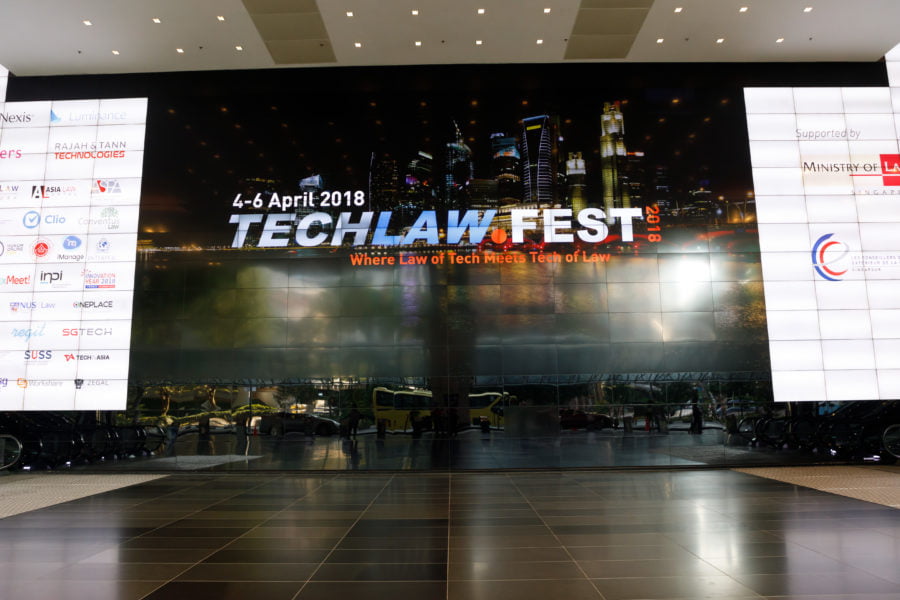Written by Josh Lee | Edited by Amelia Chew
LawTech.Asia had the privilege of being a media partner for TechLaw.Fest 2018. The inaugural TechLaw.Fest, held from 4 to 6 April 2018, saw the convergence of more than 1,000 legal professionals, technologists, entrepreneurs and regulators to participate in critical conversations about the future of the legal community. This article shares some of the common themes that emerged across the three days of TechLaw.Fest, highlighting the state of legal technology in Singapore and situating its development in Southeast Asia and the world.

Keynote address by Mr Brad Smith (President and Chief Legal Officer, Microsoft) at the Law of Tech Conference, TechLaw.Fest 2018 (Photo credit: Singapore Academy of Law)
The state of law and technology in Singapore
In recent years, there has been a growing buzz around law and technology in Singapore. In his opening address at the Law of Tech Conference, Minister-in-Charge of the Smart Nation initiative Dr Vivian Balakrishnan highlighted seven major technology trends making a global impact today:
- Declining marginal cost of replicating, storing and transmitting information;
- Declining marginal cost of computing;
- Accelerated clock speed of technology;
- Wide deployment of sensors leading to an explosion of data;
- Increasing capacity to analyse data;
- Disruption caused by robotics; and
- Progress in artificial intelligence.
Minister Balakrishnan observed that these technological trends “interact and catalyse virtual cycles, feeding and accelerating one another”. The interaction and reinforcement of these trends have political and socio-economic ramifications, such as the creation of echo chambers and filter bubbles that threaten to disrupt the fabric of society.



